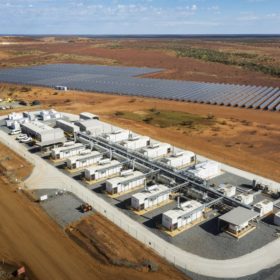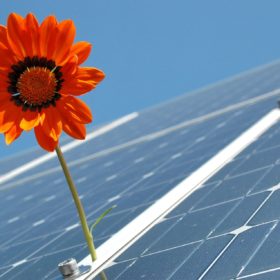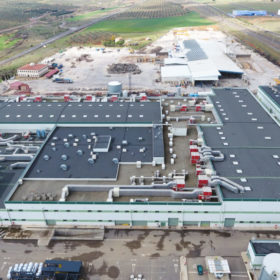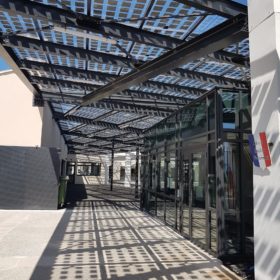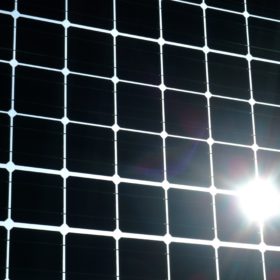56 MW hybrid wind-solar plant powers up at Australian gold mine
The unique solar, wind, and battery project has been completed at Gold Fields’ Agnew Gold Mine, marking Australia’s largest hybrid microgrid of its kind.
New method for life cycle assessment of PV technologies
Researchers in Australia have conducted a ‘cradle to grave’ life cycle assessment (LCA) of the four most widely used PV technologies. The academics say that cadmium telluride solar modules have the lowest life cycle impact, followed by amorphous, multi and monocrystalline silicon products.
Sunny regions could see one-cent solar within a decade
The solar learning curve usually applied to panel costs has been extrapolated to the larger, non-module element of the price of solar electricity generated by big projects, leading one commentator to predict new solar projects could be cheaper than legacy fossil fuel plants within 10-15 years in certain markets.
Solar grade silicon production comes back to Spain
Rivas-Vaciamadrid-based company Aurinka is planning to start UMG silicon manufacturing in Puertollano, Castile-La Mancha, this year. The company says its patented low-carbon production process offers low enough manufacturing costs to compete with Asian rivals.
BIPV solar modules with varying transparency
German panel maker Sonnenstromfabrik has developed a glass-glass monocrystalline PV module in three versions offering different levels of transparency. The company says the transparency feature makes the panels suitable for verandas, pergolas, awnings, carports, swimming pools, halls and facades. Their power output varies from 160 W to 280 W, while their efficiency ranges from 9.5% to 16.7%.
Myanmar launches 1 GW solar tender
The country’s Ministry of Electricity and Energy is seeking proposals for 30 large-scale solar plants. The selected developers will be awarded 20-year power purchase agreements.
Germany eliminates 52 GW cap for solar incentives
The country’s coalition government reached an agreement on Monday to remove the limit from the national renewable energy law. However, economy minister Peter Altmaier has not said when the measure will be implemented.
A new concept for heat-recovery solar cells
Researchers in Japan have demonstrated a new concept for a ‘heat-recovery’ solar cell, which they claim has the potential to exceed the theoretical limit for cell efficiency. They say, however, that a suitable material for the energy filtering layers is yet to be identified. The cell is equipped with a 100-micron thick silicon absorber, two electrodes and carrier-energy filtering layers placed between the absorber and electrodes.
Big solar and power-to-gas arrive in Finland
Energy company EPV Energy is planning to build a 100 MW solar park to replace peat energy production. Peers Wärtsilä and Vantaa Energy are planning a power-to-gas facility to produce carbon-neutral synthetic biogas using electricity and carbon dioxide from a waste-to-energy plant.
New PV system for facades, windows in Japan
Japan’s Kaneka and Taisei have designed their T-Green Multi Solar system to be integrated into walls and window surfaces. The system is available in two different versions – a solid type in which PV laminates are turned into vertical exterior panels or walls, and a variant that achieves transparency through striped solar cells that are integrated into window glass.
